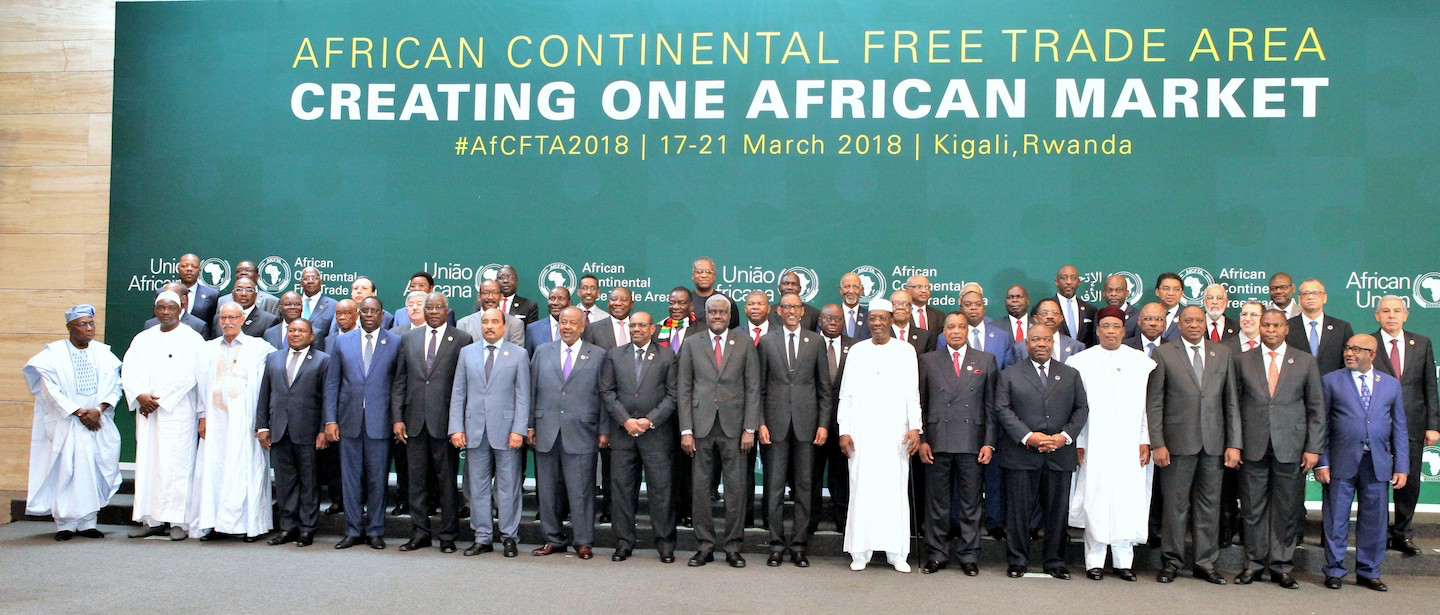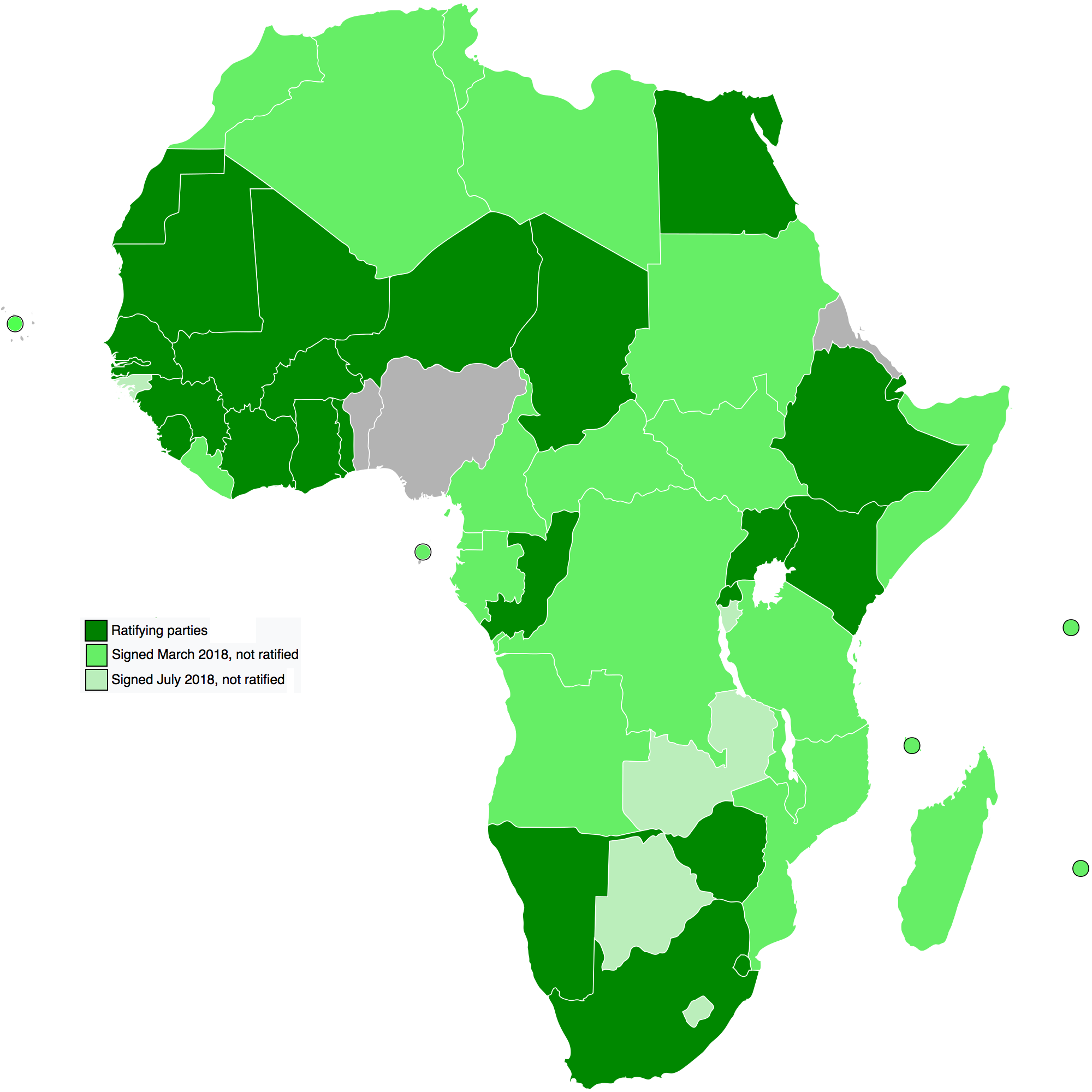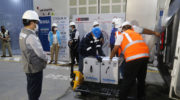Africa is becoming the largest single market in the world. A trade treaty, called the Continental Free Trade Agreement (AfCFTA) will come into effect after ratification by 24 countries. It should eventually extend to 55 countries of the continent.
The decision to launch the Continental Free Trade Area Project was taken in January 2012 at the 18th Ordinary Session of the African Union Conference. As of June 2019, 52 African States are signatories, and 24 have ratified it. Its headquarters are in Kigali, Rwanda.

This AfCFTA must bring together the free trade zones that divide Africa: the tripartite free trade zone, which must include the Common Market for Eastern and Southern Africa (COMESA), the East African community (EAC) and the Southern African Development Community (SADC), as well as the Economic Community of Central African States (ECCAS), the Economic Community of West African States (ECOWAS), the Arab Maghreb Union and the Community of Sahelo-Saharan States (CEN-SAD).
This important agreement is fertile ground for local actors and fuels greed. The continent will, however, still have to overcome many barriers to establish itself as a major economic power, like the economic blocs of the European Union or the North American Free Trade Agreement (NAFTA), which will become The United States–Mexico–Canada Agreement Agreement (USMCA).
Africa wants to exploit its economic potential, and it is legitimate. By 2050, the continent will reach 1.3 billion people and will have countries (such as Nigeria, currently 5th, which is expected to become the 3rd most populous country in the world, Ethiopia, Egypt and the Democratic Republic of Congo) among the most populous and dynamic in the world. In addition, 42% of the African population will be part of the urban middle class, while urbanization is becoming stronger in all African countries.
The AfCFTA should serve as an accelerator: it is the largest free trade treaty since the creation of the World Trade Organization (WTO), and aims to boost domestic trade, which currently accounts for only 16% of trade (against 69% in Europe). The African Union estimates that intra-African trade is expected to increase by 60% by 2022 through the elimination of tariffs.

This new space of exchange must first benefit the local actors and reinforce the links between companies and countries. For example, last year, African startups raised almost $ 1 billion (4 times more than in 2017). These fundraisers are expected to explode throughout the continent in the coming years, thanks to the new treaty, and through the generalization of trade and financial exchanges. In addition, many international players are increasingly interested in this market, synonymous with strong growth drivers in the coming decades.
The development of infrastructure, in all areas, will be one of the major challenges in the development of this new continental single market. Linkages between countries are still embryonic: few major safe roads or good railways connect countries to each other. The battle will also be in control of infrastructure: Facebook (United States) is building a new Simba submarine cable to connect the population and have the hands on the data, and Huawei (China), which already controls 3G in more that 36 countries, is in a good position for 5G. Africa should see its own economic champions emerge.
But the challenges to overcome remain numerous. All African countries are at different stages of development, so it is very difficult to find a trade agreement that meets all expectations. Moreover, Nigeria, the first economic and demographic power in Africa, has still not signed the adhesion to the future treaty, and its current president Muhammadu Buhari is against the AfCFTA, which would mean according to him the ruin of his project of industrialization of the country he intends to lead, notably through the customs duties collected. Benin and Eritrea have not yet joined the AfCFTA.
Another challenge is security. Chronic insecurity penalizes business and therefore trade, but also limits the harmonious development of populations from a health and social point of view. Criminal groups and dangerous armed gangs still control entire regions and are even gaining ground, particularly in the Sahel-Saharan strip, despite the – too meager – efforts of local states to stem their proliferation. The almost exclusively military and repressive response does not correspond to the expectations of the local populations, who hope on the contrary a greater investment effort in the economic and social development.
Finally, the development of trade should not remain, in the long term, as business of goods and financial flows. It is also necessary to develop cultural, academic, scientific and tourist exchanges, and to open much more the borders to the populations, other than by the reception of the refugees.
The future of a continent called to be one of the most populated in the world, 4.5 billion inhabitants in 2100, depends on it.




